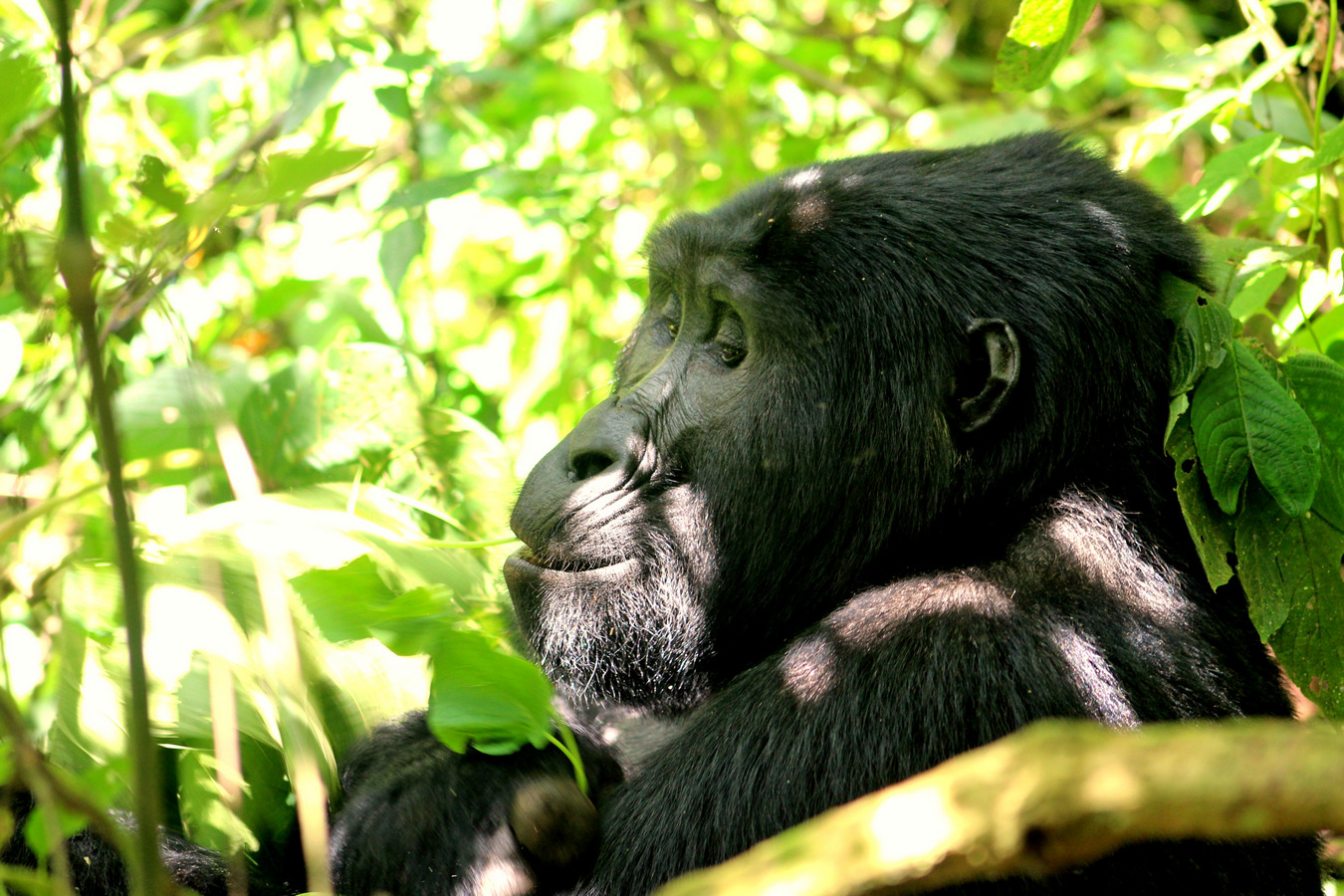The journey to encounter mountain gorillas in their natural habitat is a dream for many wildlife enthusiasts. In Uganda, the opportunity to engage in gorilla habituation offers an immersive experience that goes beyond traditional gorilla trekking. This experience allows you to understand the behaviors of these gorillas in detail and follow their daily routine from the time they wake up to the time the sun goes down.
Gorilla habituation is the process of gently introducing a family of wild Mountain Gorillas to the sight and presence of humans for research, care, and conservation purposes. Visitors are now able to take part in this process via gorilla habituation experience. Wild gorillas are habituated so researchers can study the species, treat them for sickness and injuries, protect them from hunters, and boost their conservation efforts with sustainable tourism.
To become accustomed to the presence of humans, each gorilla group has undergone a lengthy habituation process between 3-5 years managed by a team of expert researchers, conservationists, trackers, and rangers.
Park rangers start the habituation process by spending a short period with the gorillas each day, maintaining a specific distance at the limit of the gorillas’ comfort zone.
Every few months they gradually increase the time and reduce the distance until they are certain that the gorillas are ready for tourists to visit them.

The main differences between a standard gorilla trek and the habituation experience are time and cost.
The standard gorilla tracking permit costs $800, and you can spend up to one hour observing the gorillas, while a habituation permit costs $1500, and you can spend up to 4 hours with the gorillas.
Located in southwestern Uganda, Bwindi Impenetrable National Park is a UNESCO World Heritage Site and a haven for the endangered Mountain Gorillas (Eastern Gorilla). The park is renowned for its rich biodiversity, with over 400 gorillas residing in its dense forests. Bwindi offers a unique opportunity for visitors to engage in gorilla habituation experiences, making it an exceptional destination for wildlife enthusiasts.
There are two gorilla families (Bukingyi & Bushaho) that are currently being habituated in the Rushaga sector of Bwindi Impenetrable National Park.
Bwindi’s gorilla habituation program involves an early morning trek into the heart of the rainforest, guided by experienced trackers and researchers. As you journey through the dense foliage, the anticipation builds, and the sounds of the forest come alive. The habituation process allows visitors to witness a variety of gorilla behaviors, including foraging for food, playing, and social interactions within the group.
For preparation purposes, remember to consider the following items that you may need given that Gorilla habituation involves a lot of walking on rough, mountainous terrain hence a tracker is advised:
It is recommended to stay close to Bwindi Impenetrable National Park – you’ll be close to the park headquarters since you must arrive at 7:30 am for your early morning brief before the trek.
Since you will have experience in the Rushaga sector, it is best you stay within or close to that sector and the accommodations include; Rushaga Gorilla Lodge, Gorilla Leisure Lodge, and Buhoma Haven Lodge among others.
The gorilla habituation experience can be done all year round, however, it is best to do this activity during the dry seasons, from June to September, and again from December to February, but you should be prepared for showers at any time of year.
Early morning, you will arrive at the park headquarters for a briefing to prepare you for the trek.
You will trek into the forest with an expert team of guides and scouts, looking for tracks left by the gorillas.
Once you find the gorilla nest left from the previous night, you are sure that the gorillas are not so far away.
Once contact is made, you can spend up to 4 hours with the gorillas. A habituation experience gives you an insight into the lives of these amazing animals that few get to experience.
As you observe these gorillas up close, interacting with each other in their small familial groups, you’ll start to draw parallels between the gorillas and us – the similarities are often striking, and humbling.
Keep your voice low or quiet during gorilla habituation to avoid distracting the mountain gorillas.
Keep in a group during gorilla habituation and avoid moving aimlessly in the wilderness to prevent looking suspicious before the mountain gorillas.
No using flash photography while with the mountain gorillas.
If you wish to have a long call, ask the ranger guide to dig a hole for you at least 30 centimeters deep and cover it well beyond recognition.
Do not eat near the gorillas
Do not dump any garbage as this can alter the nature of the forest.
Only persons 15 years and above are allowed to do gorilla habituation.
Suppose you wish to sneeze or cough during gorilla habituation. Do it away from the mountain gorillas to reduce the chances of passing infections to the gorillas.
If you have a contagious infection like covid 19, or cough, among others, you are advised to stay behind so that you do not pass this infection to the mountain gorillas.
Keep a gap of at least 8 meters from the mountain gorillas and in case they move closer, move back to maintain the distance.
Gorilla habituation is safe because you are in the company of rangers. These rangers have most of the traits of the gorilla family and know how to react when the mountain gorillas rage.
Although these mountain gorillas are semi-habituated, they are not aggressive. Physically, they look scary because of their dark hairy bodies, but in nature, the mountain gorillas are serene and shy.
When angry, mountain gorillas hoot, thump their chests, pull grass around them, and so much more. If this aggressive behavior is displayed during gorilla habituation, do as instructed by the rangers. This is one way to show you mean no harm to them.
Follow the rules of gorilla habituation given during briefing to sustain your four hours in the presence of the mountain gorillas.
Only enter the forest with an escorting ranger guide. Not every forest animal is habituated to human presence. You may encounter wild animals like forest elephants, and giant forest hogs among others yet you have no protective weapons.
To ensure a seamless and memorable gorilla habituation experience in Bwindi, it is crucial to secure permits well in advance due to their limited availability. Physical fitness is also essential, as the trekking can be challenging. Respecting wildlife and following ethical guidelines contribute to a positive impact on the gorilla community and their habitat.
Embarking on a gorilla habituation adventure in Uganda or Rwanda is a once-in-a-lifetime experience that offers not only the thrill of encountering these majestic creatures but also an opportunity to contribute to their conservation. With options for small and large groups, half-day and full-day experiences, and year-round availability, gorilla habituation is a remarkable way to connect with nature and support the ongoing efforts to protect these incredible primates.
